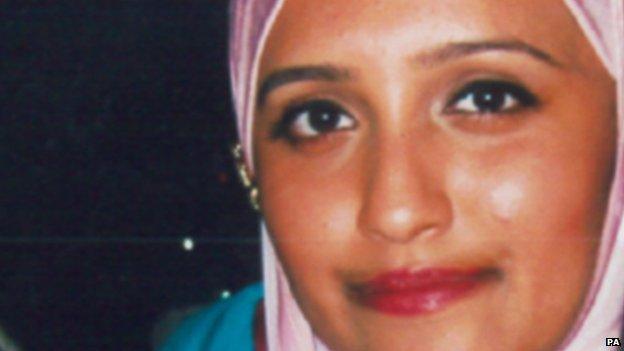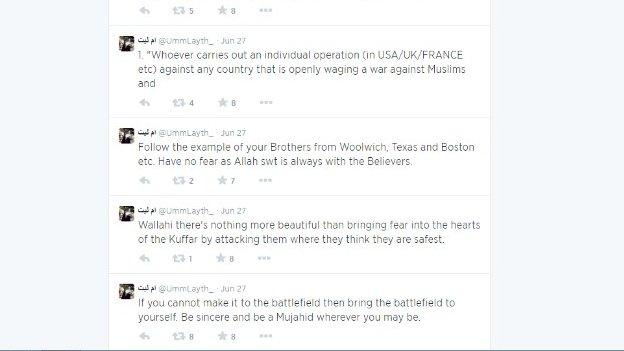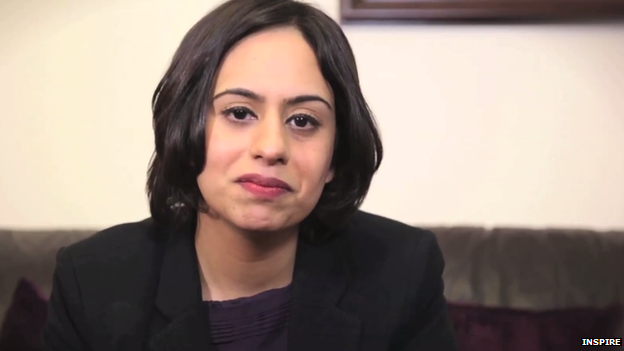How Islamic State extremists use social media to recruit
- Published

University student Aqsa Mahmoud travelled to Syria and married an IS fighter
Terrorist groups are using "aggressive online social media campaigns" to recruit young people from the UK.
Sara Khan, director at the anti-extremist group Inspire, says she has seen evidence of it on "common social media sites".
It's become clear a group of three teenage girls from London had been in contact with extremists online before leaving for Syria.
It's thought they could have also been given advice about making the journey.
Twenty-year-old Aqsa Mahmood travelled to Syria to become a "jihadi bride" in 2013 and has since thought to have been promoting terrorism via social media.

There's evidence she had been messaging 15-year-old Shamima Begum - one of the teenagers who fled London on Tuesday.
Shamima is travelling with Kadiza Sultana, 16, and Amira Abase, 15.
"The sad reality is the internet is awash with thousands of extremist websites - all claiming to speak in the name of religion," says Sara Khan.
She says extremists target young girls and try to convince them to "come and join this wonderful family" by saying things like: "We've got women from across the world. You will love it."
They try to "portray it as a big happy family," Ms Khan says "and it's a complete lie".
Last year Twitter began a sustained clampdown on accounts thought to be run by Islamic State members.

Aqsa Mahmoud is thought to have used a Twitter account to promote Islamic State
She explains often people can be innocently searching for information about their faith and be unaware they have stumbled across extreme organisations.
"Often these groups are using religious language saying: 'This what Islam says.'" Ms Kahn explains.
"They exploit religion to try to drive people to extremist interpretations of Islam.
"If a young person doesn't know their faith that much, they won't be able to distinguish what groups like IS and other extremists are saying.
"Young people need to educate themselves better and to critically think: 'What is this person calling for? Are they calling for violence, bloodshed, murder?'"

Sara Khan works for Inspire, an organisation which challenges extremism and gender inequality
Ms Kahn believes more vulnerable teenagers are sometimes targeted.
"A lot of young people have got personal grievances," says Ms Khan.
"I know of cases of girls and boys whose family have got divorced and they felt empty, they were looking for something else. Extremists fill that void."
She compares the tactics to similar ones used by far-right groups.
"They say come and we will give you happiness and comfort," says Ms Khan.

For those actively looking online for extremist material "it's not that difficult to come across this kind of messaging," she says.
Ms Khan says the major social networks should be doing more.
One problem, she says, is that websites shut down accounts, but there is nothing stopping the user from opening another straight away.
"Social media need to understand how to deal with it better. If they have an IP address can they ban the IP address as a whole so that person can't get back on.
"There are always going to be horrible people online. Be really wary.
"Protect yourselves and know who you are engaging with online."
Check out BBC Advice for help and guidance about your online life
Follow @BBCNewsbeat, external on Twitter, BBCNewsbeat, external on Instagram and Radio1Newsbeat, external on YouTube